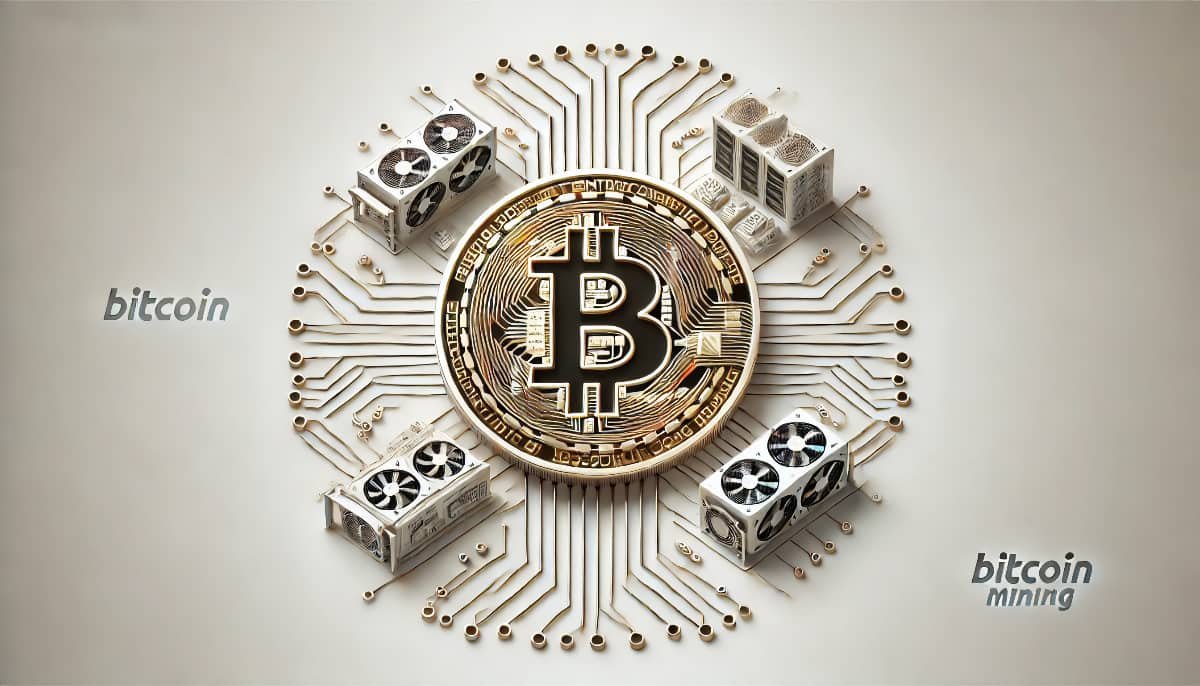The Intricacies of Bitcoin Mining
Bitcoin mining is a term that has become increasingly prevalent in the world of finance and technology. As the first and most well-known cryptocurrency, Bitcoin has revolutionised the way we think about money, transactions, and the very concept of value. But what exactly is Bitcoin mining, and why does it matter? This article delves into the complexities of Bitcoin mining, explaining how it works and why it is a crucial component of the Bitcoin ecosystem.
What is Bitcoin Mining?
Bitcoin mining is the process by which new bitcoins are introduced into circulation. It is also the mechanism through which the Bitcoin network is secured and transactions are verified. In essence, mining is the backbone of the Bitcoin network, ensuring its integrity and stability.
How Does Bitcoin Mining Work?
To understand how Bitcoin mining works, it is essential to grasp the concept of blockchain technology. The blockchain is a decentralised ledger that records all Bitcoin transactions. Each block in the blockchain contains a list of transactions, and miners are responsible for adding new blocks to the chain.
The Mining Process
The mining process involves solving complex mathematical problems, known as proof-of-work puzzles. These puzzles require significant computational power to solve, and the first miner to solve the puzzle gets to add the new block to the blockchain. In return for their efforts, the miner is rewarded with newly minted bitcoins and transaction fees from the transactions included in the block.
Steps in the Mining Process
- Transaction Collection: Miners collect transactions from the Bitcoin network and bundle them into a block.
- Hash Calculation: Miners calculate a hash for the block, which is a unique digital fingerprint of the block’s contents.
- Proof-of-Work: Miners compete to solve a proof-of-work puzzle, which involves finding a hash that meets certain criteria.
- Block Addition: The first miner to solve the puzzle broadcasts the new block to the network, and other miners verify its validity.
- Reward: The successful miner receives a reward in the form of newly minted bitcoins and transaction fees.
Why Does Bitcoin Mining Matter?
Bitcoin mining is crucial for several reasons. Firstly, it is the only way to introduce new bitcoins into circulation. Without mining, there would be no new bitcoins, and the supply would remain static. Secondly, mining ensures the security and integrity of the Bitcoin network. By requiring miners to solve complex puzzles, the network is protected from attacks and fraud.
Security and Decentralisation
One of the key features of Bitcoin is its decentralised nature. Unlike traditional currencies, which are controlled by central banks, Bitcoin operates on a peer-to-peer network. This decentralisation is made possible by mining, as it ensures that no single entity has control over the network. Instead, power is distributed among a vast network of miners, making it extremely difficult for any one party to manipulate the system.
Transaction Verification
Another critical function of mining is transaction verification. When a Bitcoin transaction is made, it is broadcast to the network and included in a block by a miner. The mining process ensures that the transaction is valid and that the sender has sufficient funds. This verification process is essential for maintaining the integrity of the Bitcoin network and preventing double-spending.
The Economics of Bitcoin Mining
Bitcoin mining is not just a technical process; it is also an economic activity. Miners invest significant resources in hardware and electricity to mine bitcoins, and their profitability depends on several factors.
Mining Rewards
Miners are rewarded with newly minted bitcoins and transaction fees for their efforts. The reward for mining a new block is currently 6.25 bitcoins, but this amount is halved approximately every four years in an event known as the “halving.” This mechanism ensures that the supply of new bitcoins decreases over time, mimicking the scarcity of precious metals like gold.
Cost of Mining
The cost of mining can be substantial, as it requires specialised hardware and significant electricity consumption. The most efficient miners use Application-Specific Integrated Circuits (ASICs), which are designed specifically for mining. These devices are expensive and consume large amounts of electricity, making energy costs a significant factor in mining profitability.
Mining Pools
Due to the high costs and increasing difficulty of mining, many miners join mining pools. A mining pool is a group of miners who combine their computational power to increase their chances of solving the proof-of-work puzzle. When a block is successfully mined, the reward is distributed among the pool members based on their contribution to the pool’s total computational power.
The Environmental Impact of Bitcoin Mining
One of the most controversial aspects of Bitcoin mining is its environmental impact. The energy-intensive nature of mining has led to concerns about its carbon footprint and sustainability.
Energy Consumption
Bitcoin mining consumes a significant amount of electricity. According to some estimates, the Bitcoin network’s energy consumption is comparable to that of entire countries. This high energy consumption is primarily due to the proof-of-work mechanism, which requires miners to perform vast amounts of calculations.
Renewable Energy and Sustainability
In response to environmental concerns, some miners are turning to renewable energy sources. Solar, wind, and hydroelectric power are increasingly being used to power mining operations. Additionally, some mining farms are located in regions with abundant renewable energy resources, reducing their carbon footprint.
Environmental Initiatives
Several initiatives are underway to address the environmental impact of Bitcoin mining. For example, the Bitcoin Mining Council was formed to promote sustainable mining practices and increase transparency around energy consumption. Additionally, some blockchain projects are exploring alternative consensus mechanisms, such as proof-of-stake, which are less energy-intensive than proof-of-work.
The Future of Bitcoin Mining
The future of Bitcoin mining is uncertain, as it is influenced by various factors, including technological advancements, regulatory developments, and market dynamics.
Technological Advancements
Technological advancements in hardware and software could significantly impact the future of Bitcoin mining. More efficient mining hardware could reduce energy consumption and increase profitability. Additionally, advancements in software could improve the efficiency of mining operations and reduce costs.
Market Dynamics
The profitability of Bitcoin mining is closely tied to the price of Bitcoin. As the price of Bitcoin fluctuates, so does the profitability of mining. During periods of high prices, mining can be highly profitable, attracting more miners to the network. Conversely, during periods of low prices, mining can become less profitable, leading some miners to exit the market.
Regulatory Developments
Regulatory developments could also impact the future of Bitcoin mining. Governments around the world are increasingly scrutinising cryptocurrencies and their environmental impact. Regulations aimed at reducing carbon emissions could affect mining operations, particularly those that rely on non-renewable energy sources.
Conclusion
Bitcoin mining is a complex and multifaceted process that plays a crucial role in the Bitcoin ecosystem. It ensures the security and integrity of the network, introduces new bitcoins into circulation, and verifies transactions. However, it also has significant economic and environmental implications. As the world of cryptocurrencies continues to evolve, so too will the landscape of Bitcoin mining. Technological advancements, market dynamics, and regulatory developments will all play a role in shaping the future of this essential activity.

Q&A Section
| Question | Answer |
|---|---|
| What is Bitcoin mining? | Bitcoin mining is the process by which new bitcoins are introduced into circulation and transactions are verified on the Bitcoin network. |
| How does Bitcoin mining work? | Bitcoin mining involves solving complex mathematical problems to add new blocks to the blockchain. Miners are rewarded with newly minted bitcoins and transaction fees. |
| Why is Bitcoin mining important? | Bitcoin mining is crucial for introducing new bitcoins into circulation, securing the network, and verifying transactions. |
| What are the environmental concerns associated with Bitcoin mining? | Bitcoin mining consumes significant amounts of electricity, leading to concerns about its carbon footprint and sustainability. |
| What is the future of Bitcoin mining? | The future of Bitcoin mining will be influenced by technological advancements, market dynamics, and regulatory developments. |














 How to trade CFD? (00:49)
How to trade CFD? (00:49) How to trade binary options*? (01:22)
How to trade binary options*? (01:22) Forex. How to start? (01:01)
Forex. How to start? (01:01)